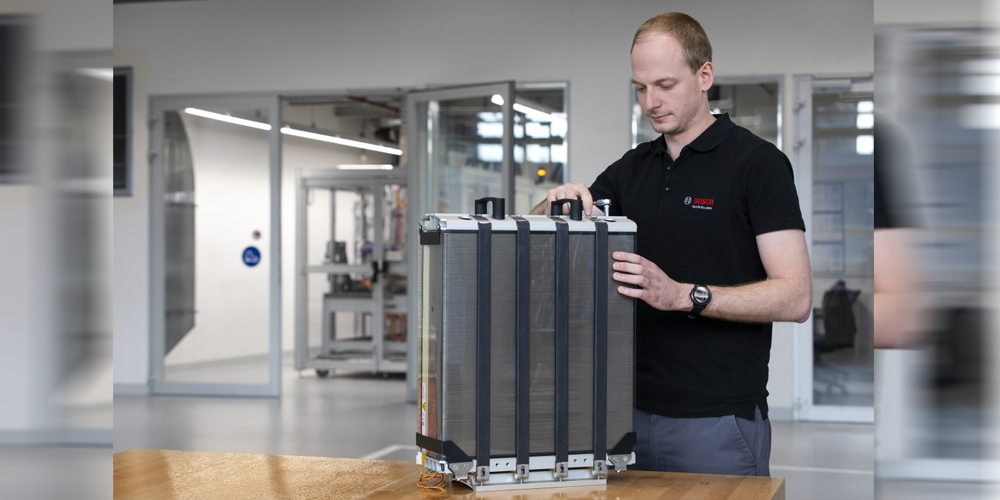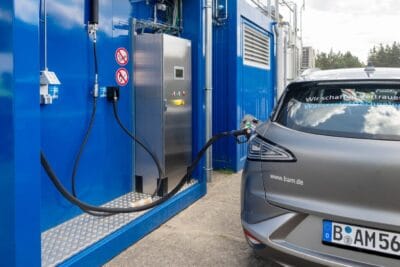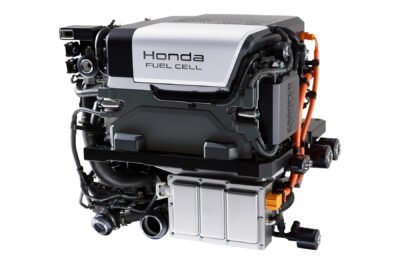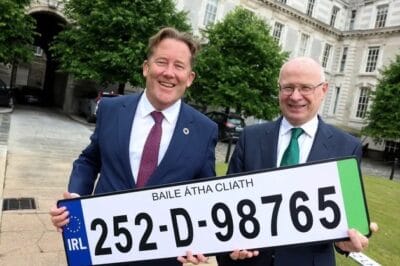PowerCell gets more orders for FC stacks from Bosch
PowerCell Sweden has been given a further order from Bosch worth the equivalent of around 900,000 euros to supply FC stacks of the PowerCell S3 type next year. The deal is part of a joint development and license agreement signed in 2019.
Since April 2019, Bosch and PowerCell Sweden have been working together on the development, production and marketing of a stack for the automotive sector based on the polymer electrolyte fuel cell (PEM) called PowerCell S3. Under the development and license agreement concluded at the time, Bosch secured the right to offer the new version of the S3 fuel cell stacks exclusively in cars, trucks and buses. The market launch, Bosch said at the time, was scheduled for “2022 at the latest”. By flexibly combining two or more stacks, the duo aims to cover a portfolio of products and services ranging from passenger cars to heavy trucks.
In April this year, PowerCell received a similar order from Bosch worth around one million euros. At the end of January, the German supplier also announced that it already had the first customer for the fuel cells. For the fuel cell trucks of the US startup Nikola, Bosch will supply not only the E-axles but also the entire fuel cell system with technology from PowerCell. There is also to be a first customer in the passenger car sector, but the company, which is not mentioned by name, only purchases components from Bosch, not the entire system.
While Bosch, as mentioned, has exclusive rights for the road, PowerCell sells its fuel cell for other segments. For example, according to an earlier announcement, the company has signed a contract with an unnamed “leading European shipyard” for the development and supply of a marine fuel cell system with a total output of approximately 3 megawatts. The system is to be developed and delivered within three years. The order is worth 6.9 million euros for the development, production and delivery of the system.
Bosch sees long-term potential in the mobile fuel cell technology business in the billions. Bosch has already made clear some time ago that starting with commercial vehicles, Bosch fuel cell drives would then be increasingly used in passenger cars in the future. To achieve this, however, the cost of fuel cell systems would have to fall gradually. According to Bosch, the largest item is the stack, which accounts for up to two-thirds of the total costs. Bosch said that through industrialisation and the spread of the technology on the market, they would achieve economies of scale and cut costs, as emphasised by Dr Stefan Hartung, Bosch board of management and chairman of the Mobility Solutions division, last year. However, for this to happen the costs for hydrogen must also fall, although the price (“often more than five euros per kg”) tends to decrease as production increases.
Bosch and PowerCell are contributing their already accumulated know-how in this field to the cooperation: PowerCell, a business unit spun off from the Volvo Group in 2008 and based in Gothenburg, was already building fuel cells for prototypical use in trucks and cars before the cooperation. For its part, Bosch already has an extensive portfolio of FC components on offer, such as air compressors with power electronics or control units with sensors.
With reporting by Cora Werwitzke





0 Comments